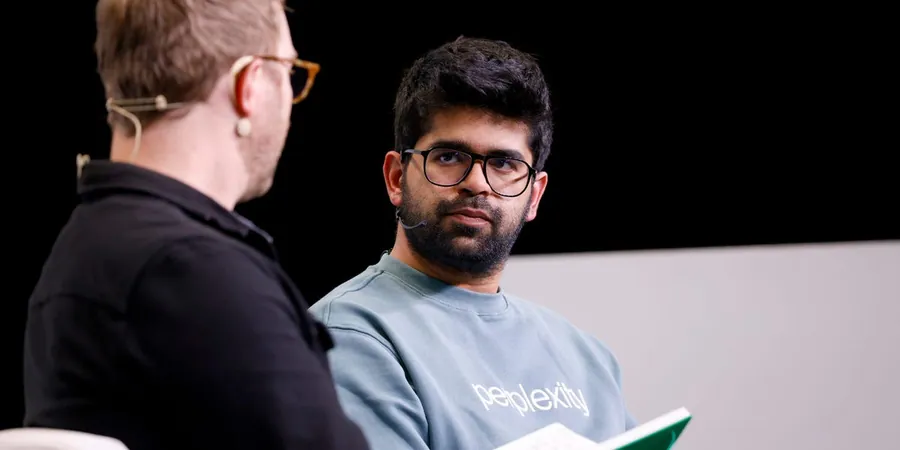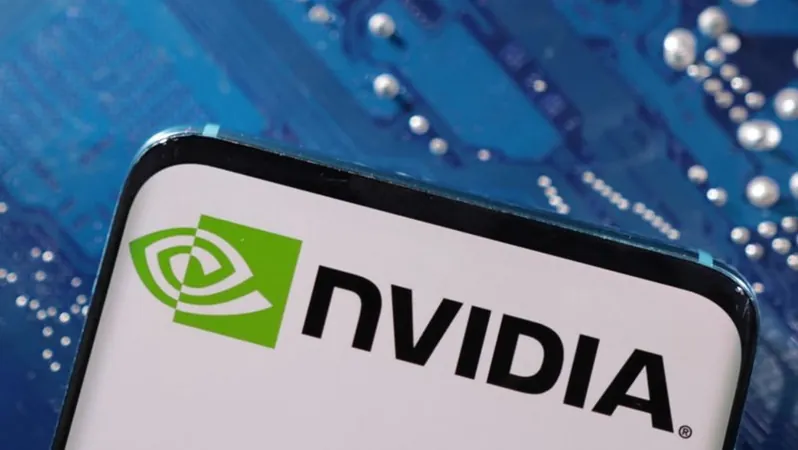
CEO of Perplexity Warns Startups: Expect Your Ideas to Be Stolen!
2025-07-14
Author: Wei
In a bold and revealing talk at Y Combinator's AI Startup School, Aravind Srinivas, CEO of Perplexity, shared a stark reality for aspiring entrepreneurs: be prepared for your innovative ideas to be copied by larger tech giants.
Srinivas emphasized that prominent companies are quick to replicate successful concepts, stating, "They will copy anything that's good." His remarks came as Perplexity, which launched as a unique answer engine capable of web crawling, is now competing against similar tools from tech behemoths like OpenAI and Google.
Addressing a packed audience of students from various academic backgrounds, Srinivas encouraged hard work and realism. He warned, "If your company has the potential to generate hundreds of millions or even billions in revenue, you should always assume that a major player will attempt to imitate it."
Why do these giants copy? According to Srinivas, it’s all about financial motivation. With massive funding often nearing $50 billion, these companies are on the lookout for new opportunities to justify their expenditures and maintain revenue growth.
Perplexity made its mark by offering a groundbreaking service just over a year ago, while many existing chatbots were limited to outdated knowledge. Since Perplexity's launch, competitors sprang into action: Google introduced its web-crawling model, Gemini, just three months after Perplexity, and ChatGPT followed suit shortly thereafter.
But it isn’t just about imitation; according to Jesse Dwyer, Perplexity’s head of communications, larger firms will go to great lengths to overshadow smaller competitors. He warned that, in the race to dominate the market, even innovative startups risk being drowned out.
In a striking move, Perplexity released its Comet browser earlier this month, while OpenAI has been rumored to be developing its own browser to challenge Google Chrome. Dwyer cautioned, "The browser wars should benefit the users. If they lose, it will be due to monopolistic practices by a company trying to dominate the market. Thus, OpenAI's browser will likely mirror Google’s tactics."
As the battle for the AI web browsing space heats up, Srinivas's insights serve as a wake-up call: innovation can attract imitation, and in this cutthroat landscape, it’s essential to be both vigilant and resilient.



 Brasil (PT)
Brasil (PT)
 Canada (EN)
Canada (EN)
 Chile (ES)
Chile (ES)
 Česko (CS)
Česko (CS)
 대한민국 (KO)
대한민국 (KO)
 España (ES)
España (ES)
 France (FR)
France (FR)
 Hong Kong (EN)
Hong Kong (EN)
 Italia (IT)
Italia (IT)
 日本 (JA)
日本 (JA)
 Magyarország (HU)
Magyarország (HU)
 Norge (NO)
Norge (NO)
 Polska (PL)
Polska (PL)
 Schweiz (DE)
Schweiz (DE)
 Singapore (EN)
Singapore (EN)
 Sverige (SV)
Sverige (SV)
 Suomi (FI)
Suomi (FI)
 Türkiye (TR)
Türkiye (TR)
 الإمارات العربية المتحدة (AR)
الإمارات العربية المتحدة (AR)